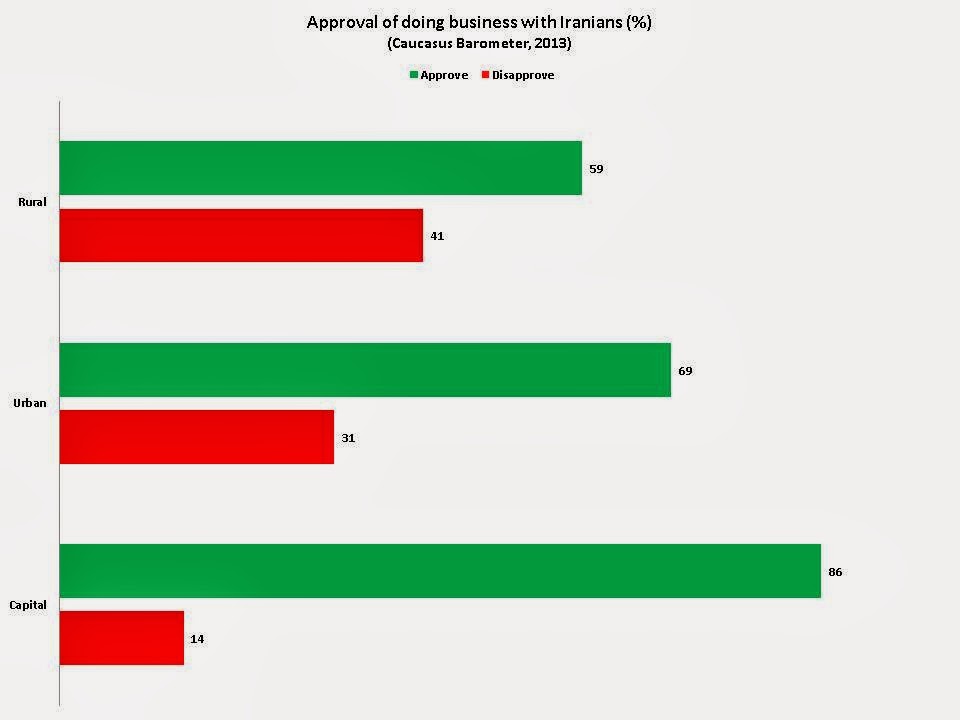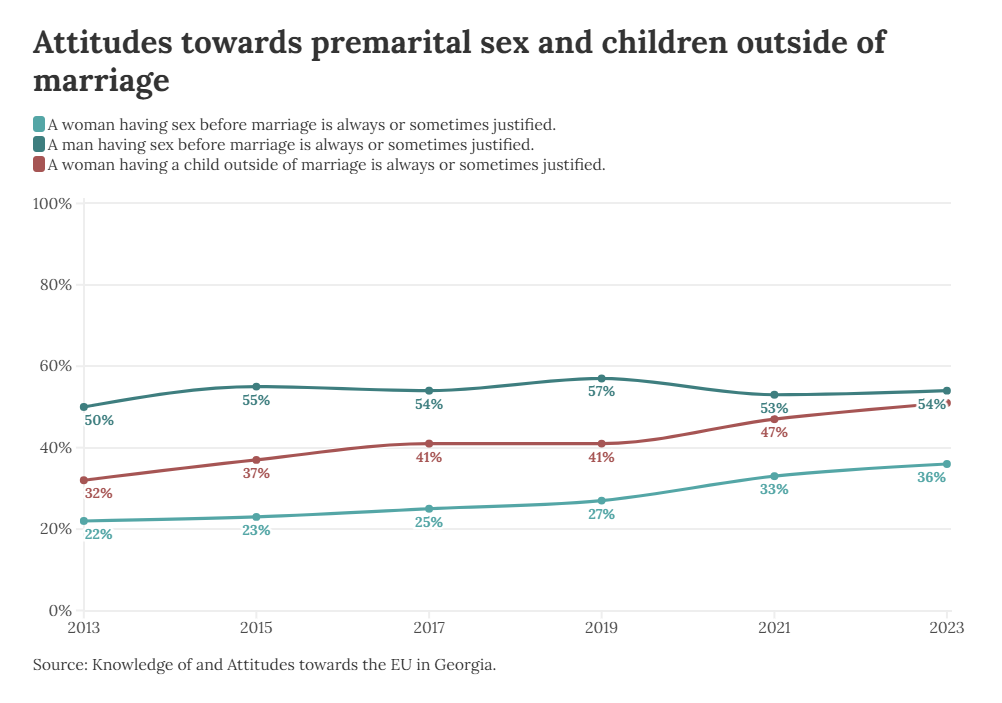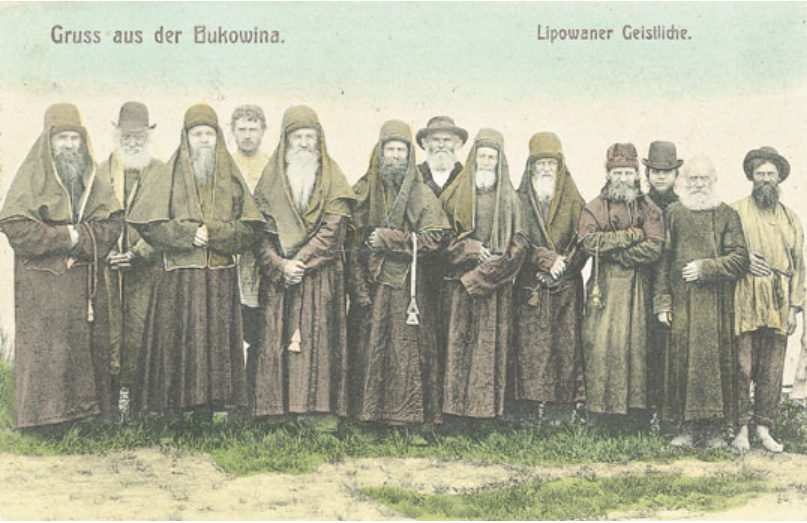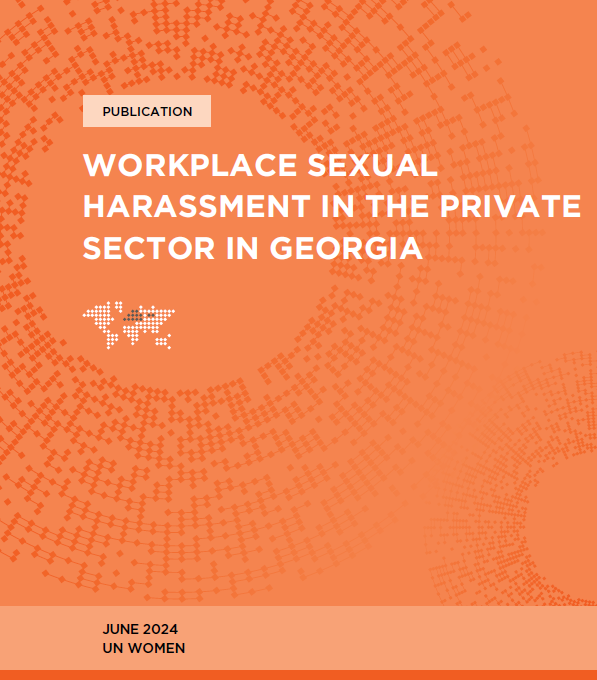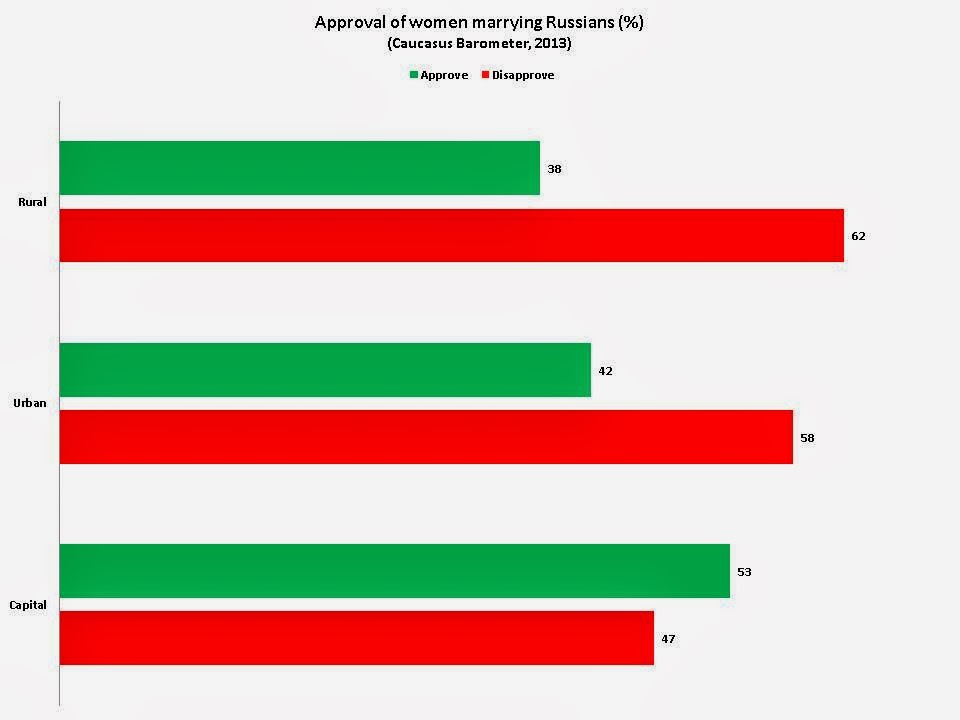
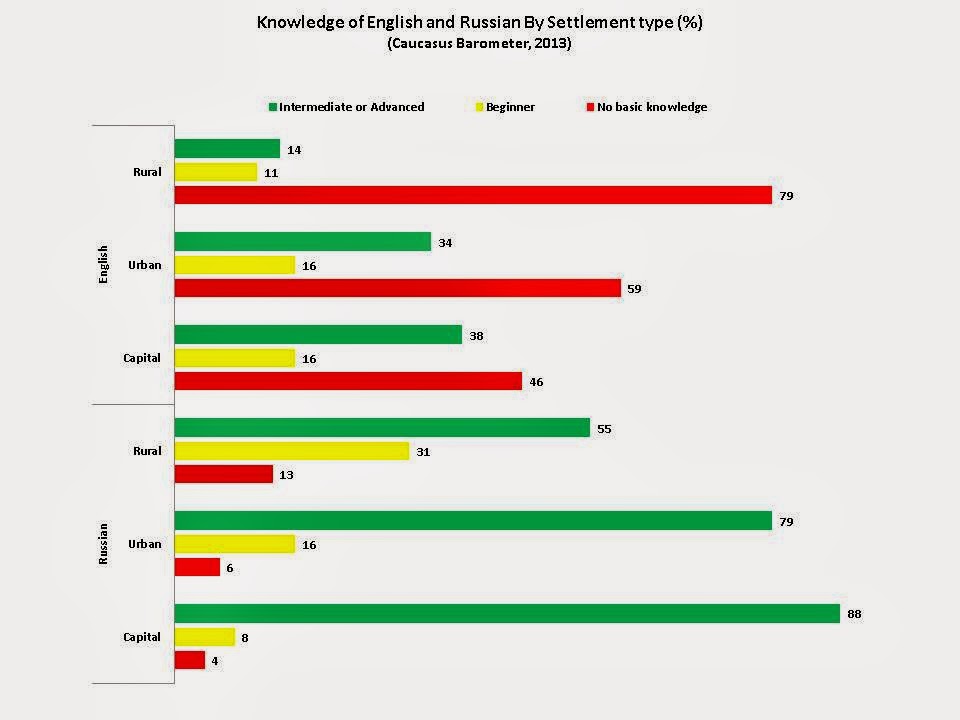
Note: Responses of Intermediate and Advanced were combined in this graph.
With the language barrier, it could be difficult for Georgian and foreign farmers to form relationships and communicate effectively. In order to avoid the language barrier, a number of companies have brought their own labor force to the country, including the Xinjiang Hualing Group which operates a small factory town on the outskirts of Kutaisi. Despite this, many foreign farmers who have moved to Georgia report hiring Georgians, especially during the harvest season. This could be a further factor which has conditioned the relationships existing between local and foreign farmers, as well as future relations between them.
This blog post has looked at the perspectives of rural residents on doing business with members of other ethnic groups as well as their level of knowledge of English and Russian. It shows that rural Georgians are much less likely to approve of doing business with other ethnicities, and that rural residents are much less likely to have knowledge of Russian or English. With these factors in mind, support for the ban on agricultural land sales may be more understandable. If residents in rural areas, many of whom are involved in agriculture, are less likely to be able to communicate with foreigners and are more likely than other Georgians to disapprove of relationships with them, then would they want them as neighbors? To explore these issues further, we recommend using our ODA tool here or reading this blog post detailing the extent of foreign agricultural holdings posted on the Transparency International Georgia website.
